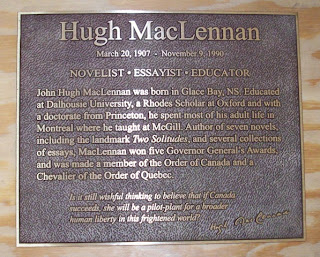The Fabulous Kelley
Thomas P. Kelley, Jr.
Richmond Hill, ON: Pocket, 1968
The Fabulous Kelley
Thomas P. Kelley, Jr.
Toronto: General, 1974
Thomas P. Kelley crowned himself "King of the Canadian Pulp Writers", so there should be no surprise that he considered his father a monarch amongst medicine men.
Who knows, maybe he was
From 1886 until his death forty-five years later, Kelley,
père – a charismatic farm boy from Newboro, Ontario – operated the traveling Shamrock Concert Company. If Kelley,
fis, is to be believed, their shows attracted crowds numbering 12,000 and more, bringing in many millions of dollars.
 The Fabulous Kelley
The Fabulous Kelley is typical of the author's non-fiction writing in that it contains nothing in the way of endnotes, references or bibliography. It's also atypical, standing out as the most polished of his many titles. Credit could go to the editors at Pocket Books, whom one might expect were more strict than those of previous publishers Harlequin, Arrow Publishing and News Stand Library, but I'm sentimental enough to believe that Kelley made an extra special effort here.
This is the story of a beloved father told by his son. Thomas P. Kelley, Sr., was indeed an extraordinary and unusual man. He was also a charlatan. In the 208 pages of the Pocket edition junior remains blind to this fact, all the while providing damning evidence. His greatest and only defence is that Dad never wavered in maintaining that he was superior to all others. Here papa medicine man is confronted by a disgruntled Oklahoma undertaker:
"We had a medicine man pass through here about three years ago. He came with a horse and wagon and peddled some worthless fluid he advertised as 'Snake Oil'. He called himself Professor Logan."
"I've heard of him,"was the other's answer. "Logan is a fraud, a cheap pitchman working solo. He's not a medicine man."
"Oh, then there's a difference?" and there was a tinge of sarcasm in the other's quietly spoken words. "How interesting. Pray tell me, just how much difference is there between a pitch man and a medicine man?"
Doc Kelley, one hand on the doorknob, turned and shot a glance at those pallid features and asked: "The woman who answered the door is your wife?"
"She is."
"Have you seen a photo of the famous beauty , Lily Langtry?"
"I have."
"There is that much difference..."
This exchange, my favourite, is not found in General Publishing's 1974 reprint. In fact, the latter publisher cut over 30,000 words, something approaching half of the original text. Here we have an odd instance in which a hardcover edition bowdlerizes a paperback original. What makes this even more unusual is the fact that the 1984 edition of
The Fabulous Kelley marks the first and only time in which Thomas P. Kelley, Jr. was published in anything other format than paperback.
I've taken some swipes at Kelley in the past, but won't here. Sure, there's a good amount of exaggeration and embellishment in
The Fabulous Kelley, but this is easily stripped away to reveal an all too rare glimpse of the medicine show by a man who grew up in its world. General's edition, which is much more common than any other, does a great disservice in ridding itself of things that are verifiable.
 |
|
14 April 1865 - 31 April 1931
|
This is not to say that there isn't superfluous stuff – the junior Kelley does tend to run on, but here I'm happy to let him go. What follows is Thomas P. Kelley's comment on his father's death from a heart attack on 31 July 1931 in the Ontario town of Uxbridge:
So died Thomas P. Kelley, the King of the Medicine Men. Yes, and the medicine-show period died with him. The entertainment that had brought joy to millions throughout North America for more than a hundred years perished with its King.
So ends the General's bowdlerized edition. The Pocket Books edition continues:
Passed into oblivion, its distant glories forgotten, like the flame of a candle blown out with his final breath, Now it was all over; at long last modern times had triumphed and the medicine show days were no more. But it was a triumph which could only be gained by the death of the man with the golden tongue. A death that marked the end of an era.
And even today the dwindling few old-time medicine show performers continue to tell: "Nature made only one Doc Kelley then threw away the mold."
- FIN -
Objects: The Pocket Books first edition is an unexceptional mass market paperback, but looks much more attractive than any of the other editions. Credit should go to Peter Max, though I'm betting he had nothing to do with the design.
The oh-so-bland General Publishing edition features a lazy 400-word Introduction by Gordon Sinclair. Yep, he's had a quick look through the book, and is ready to repeat a few tidbits. Consider them spoilers.
General dropped all fifteen Bob White cartoons found in the Pocket first.
Curiously, General also got rid of nearly all photographs of the Pocket edition, replacing them with others that are neither better nor worse.
Access: Bowdlerized or not,
The Fabulous Kelley is next to impossible to find in our public libraries and is a rare thing at our universities. The Pocket Books paperback is both uncommon and cheap – the few copies available online can be had for five dollars or less. The General Publishing hardcover is not only much more easy to find, but much more cheap. Good copies can be had online for as little as a dollar. The last edition, published by Paperjacks in 1975, uses General's shorter text (Gordon Sinclair's snoozy Intro included). It's easy to find and cheap... but really, it's the Pocket mass market you'll want.




































